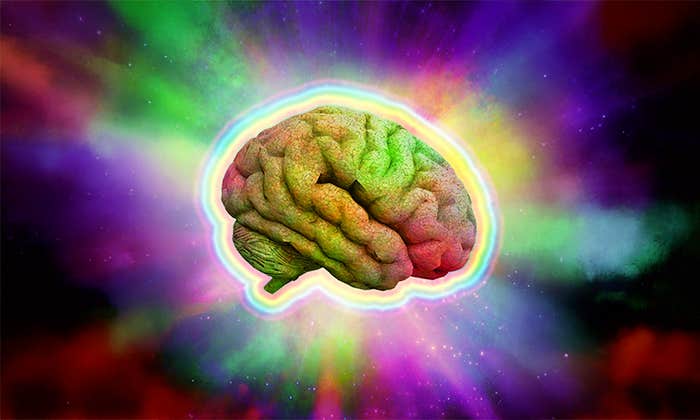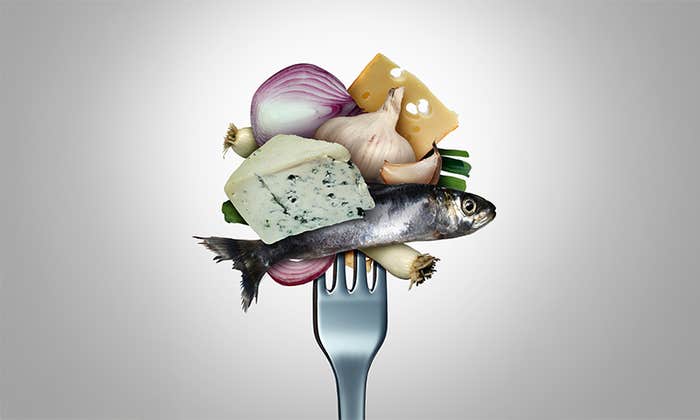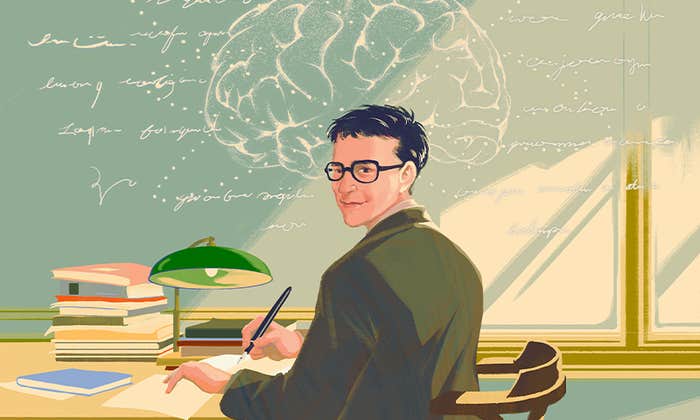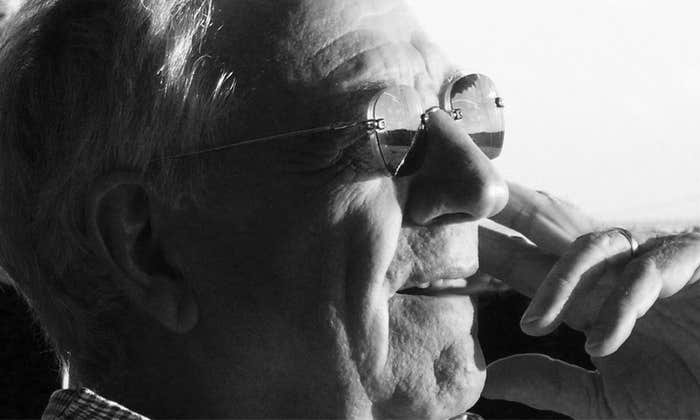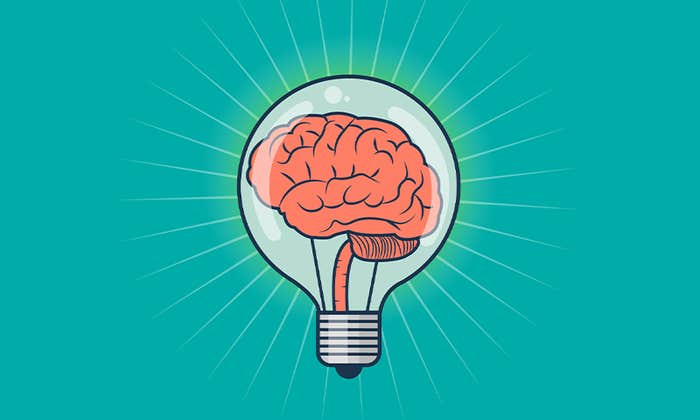Karl Friston wanted me to know he had plenty of time. That wasn’t quite true. He just didn’t want our conversation—about his passion, the physics of mental life—to end. Once it did, he would have to step outside, have a cigarette, and get straight back to modeling COVID-19. I caught the University College London neuroscientist at 6 p.m., his time, just after he had sat on a panel at a COVID-related press conference. He apologized for still having on a tie and seemed grateful to me for supplying some “light relief and a distraction.”
A decade ago, Friston published a paper called “The Free-Energy Principle: A Unified Brain Theory?” It spells out the idea that the brain works as an editor, constantly minimizing, “squashing” input from the outside world, and in the process balancing internal models of the world with sensations and perceptions. Life, in Friston’s view, is about minimizing free energy. But it’s not just a view of the brain. It’s more like a theory of everything. Friston’s free-energy theory practically sets your brain on fire when you read it, and it has become one of the most-cited papers in the world of neuroscience. This May, Friston published a new paper, “Sentience and the Origins of Consciousness,” that takes his ideas into new intellectual territory.
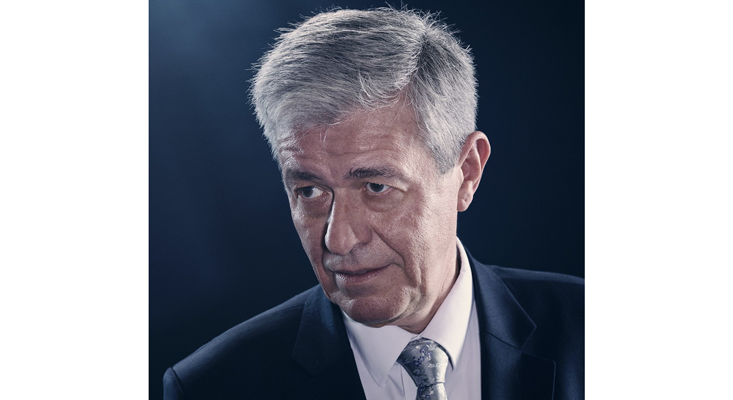
Friston, currently a Wellcome Trust Principal Fellow and Scientific Director of the Wellcome Trust Centre for Neuroimaging, invented statistical parametric mapping, a brain scanning technique that has allowed neuroscientists to assess, as never before, the activity in specific brain regions and their roles in behavior. The discoveries he’s helping to make about the nature of the brain come out of a psychiatrist’s concern for the well-being of his patients, suffering from chronic schizophrenia. “Most of our practical work on causal modeling, data analysis, and imaging sciences was motivated and actually funded by schizophrenia research,” Friston said. “It has been a central part of my life and career for decades.”
The applications of Friston’s research are tangible and have made major contributions to mental disease, brain imaging, and now the COVID-19 pandemic. Venturing into the theory behind them, however, is a safari through a jungle of fascinating and at times beguiling concepts. Friston’s ideas have been on my radar for some time, so I was excited to jump right in. He was a passionate tour guide, taking us through a landscape of some of the most stimulating topics in science today, from consciousness to quantum physics to psychedelics.
In “The Free-Energy Principle,” you write the world is uncertain and full of surprises. Action and human perception, you argue, are all about minimizing surprise. Why is it important that things—including us—minimize surprise?
If we minimize surprise now, then on average over time, we’re minimizing the average surprise, which is entropy. If a thermostat could have beliefs about its world—it might say, “My world is about living at 22 degrees centigrade”—so any sensory information from its thermal receptors that departs from that is surprising. It will then act on the world to try and minimize that surprise and bring that prediction error back to zero. Your body’s homeostasis is doing exactly the same thing.
Does the brain minimize surprise in order to conserve energy?
You could certainly say that. But I wouldn’t quite put it like that. It’s not that the brain has a goal to exist. It just exists. It looks as if it has a goal to exist. What does existing mean? It’s always found in that configuration. The brain has to sample the world in a way that it knows what’s going to happen next. If it didn’t, you’d be full of surprises and you’d die.
Anything you talk about is really just an explanation for your lived world.
What’s the core argument of the free energy principle?
Variational free energy is basically a quantity that stands in for surprise. It’s the ultimate goal-function of life. Why is there a difference between free energy and surprise? Let’s say I tasked you with engineering an oil droplet. You want to engineer an oil droplet and sell it on Amazon. You would have to write down its equations of motion, flows on gradients, where these gradients are defined by surprise, and the surprise defines the likely configuration that characterizes an oil droplet. The problem is, when you come to evaluate that surprise, that potential energy, it becomes numerically impossible to do because of all the different ways in which its configuration could have been caused. This means that flows can’t physically be realized by you—trying to engineer your Amazon oil droplet.
So how can you build an oil droplet, or anything, for that matter?
There is a way of doing it, invented by the physicist Richard Feynman. He had exactly the same problem in quantum electrodynamics. He wanted to evaluate the probability of all the ways that this electron could get from the initial state in which it was prepared to some final or end state. The number of paths that a particle could take is infinite. Feynman was facing an enormous problem. He wanted to calculate the most likely electron path, but he couldn’t evaluate all the possible ways that the particle could get from here to here, let alone start looking up the most likely path.
So he came up with variational free energy, which is essentially a mathematical quantity that is always bigger than the surprise. If you squash or reduce the free energy, which you can measure quite easily, you can do your gradient descent, and get to the bottom of free energy. What Feynman effectively did was replace an impossible integration problem with a tractable optimization problem. If you want to emulate self-organization, you’re going to have to change the problem from the way the world works into an approximation of the way the world works, and develop an optimization scheme.
You can see why free energy starts to take a key role in articulating these ideas about how the brain works. It may well be that it wasn’t just Richard Feynman that realized this was the way to self-evidence efficiently and effectively. It might be that evolution has also realized this. This variational trick—minimizing Feynman variational free energy—has become installed in us.
The idea of a Markov blanket shows in your recent paper on the origins of consciousness. Who was Markov, and what is this blanket named after him?
Andrey Markov was one of the grandfathers of stochastic processes and probability theory. The notion of a Markov blanket arises, not in consciousness research, and not really even in neuroscience—it’s much more fundamental than that. Any thing necessarily exists as a Markov blanket. Because if it didn’t, you wouldn’t be able to measure anything that distinguished the thing from something else. It’s absolutely crucial. If something doesn’t have a Markov blanket, it doesn’t exist. From the perspective of systems neuroscience, the Markov blanket is a new and important thing in the toolkit that allows you to demystify and talk with a different calculus, and a different language, about things such as sentience.
What’s a good example of something that illustrates the Markov blanket?
Let’s go back to our oil droplet. Imagine it in a glass of water. The agenda is to understand, “Why does the oil droplet hang together? Why does it resist the tendency to be dispersed, dissolve, dissipate, and distribute all its molecules around the solvent?” There’s something special about certain things or systems, like the oil droplet, that manage to distinguish themselves from the universe, or the environment in which they are immersed.
The Markov blanket helps explain how things can exist—but what is it, exactly?
The Markov blanket is a permeable interface between the inside and the outside, enabling a two-way exchange. Stuff on the outside—the environment, the universe, the heat bath—impacts what’s going on inside via the sensory part of the Markov blanket. The Markov blanket has sensory and active states. Stuff on the outside, the external states, influence the blanket’s sensory states, what the blanket senses. And stuff on the inside of the blanket, the internal states, influence the blanket’s active states. The active states close that circle of causality, or, if you like, they disclose what’s going on inside by acting on the outside state. With that mathematical construct in place, you can go a lot further than 20th-century physics, which was all about equilibrium statistics and thermodynamics—the kind of physics that you would have been taught in school. Implicit in equilibrium physics is the notion that you’ve got an isolated or a closed system immersed in a heat bath—without ever asking where the heat bath came from. That implicitly assumed the Markov blanket.
The brain has to sample the world in a way to what’s going to happen next.
Where can the Markov blanket take physics in the 21st century?
You can start to address what most people in physics—not most, but those with a more adventurous mind and the time and money to do it—want to ask and address. Which is, “How do things self-organize when they are exposed to something out there?” Open systems, in other words. Systems that are far from equilibrium—non-equilibrium steady states that persist despite the fact that they are in exchange with their environment. We are the perfect examples of things that seem to persist over time, despite a fluctuating and capricious world out there.
Your work seems to make a physics of sentience possible. Can we really quantify forces that govern our minds?
That’s exactly right. Force is just an expression of a gradient, and the gradient is a construct that determines the flow of states. You can think of gravity, for example, as a force or as a gradient flow on a gravitational potential. I’m getting a bit abstract now, but I think it’s important and demystifying to say that the potential energy function that produces the forces that are causing all your neural activity at this moment—while you’re listening in a sentient way to what I’m talking about—can all be written down as flows on a potential energy, the logarithm of the probability of my sensations, of being in a particular state, given my model of the world.
This, almost tautologically, has to be the case, mathematically speaking. If I’ve got a good model of the world on the other side of my Markov blanket, and I keep on sampling things that I predict and I expect to sample, then it must be the case that everything on the inside is recapitulating and minimizing that potential. Mathematically, this means maximizing my evidence for the likelihood of those sensations, given my understanding, or model prediction, of what’s going on. This leads you into this notion of self-evidencing, which is just another way of saying “to exist.”
OK, you’re getting a bit abstract. Can you put this mental action in more concrete terms?
There’s a really nice way of thinking about the mechanics of this in terms of belief-updating. So, in the world of Bayesian statistics, you get some new data. You update your prior beliefs to posterior beliefs after seeing the data. You’re assimilating that data, updating it, then revising and changing your mind. Changing your mind on the basis of the new information at hand is called belief-updating. That belief-updating is a measure of the degree to which you have moved in this space of beliefs on this information geometry. If you get lots of new information that changes your mind a lot, you’ve moved a long distance. And that means that there has been a big force, a big pressure, on you exerted by this new information to change your mind.
If, on the other hand, what you are sensing from, say, the soles of your feet, conveys no information, and you’re not changing your mind, you wouldn’t notice it. There’s no belief-updating unless you attend to the sensations from the soles of your feet. I find this fascinating: The measure of how much you move in these information geometries, how much force is exerted, or how steep these gradients are that are pulling you this way or that, very much rests upon the precision of information. It is this precision that determines mental action.
Richard Feynman had exactly the same problem in quantum electrodynamics.
What do you mean by “precision of information”?
It’s the curvature, or the gradients of the force fields causing your belief-updating, literally causing increases or decreases in neural activity. It ties together very nicely from a mathematical point of view. If you can start to choose how much precision to afford this kind of information, or that kind of information, then you’ve got a bit of an inner life. Of course, oil droplets can’t choose where to deploy their precision—but you can.
While looking at you, I can focus on the lamp to my left without moving my eyes on it. You’re saying that ability is a kind of prerequisite for a rudimentary form of inner life. Is the ability to be aware that you have this ability a further step in a richer inner life?
Absolutely. You and I have this hypothesis that it’s me having these qualitative experiences, of talking to you. And it’s me prosecuting these mental actions. But that’s just another hypothesis, and it’s just another representation of some reality out there. If you start to put these representations into the mix, then you’re getting much closer to a minimal selfhood that underwrites the agency and the ownership of these qualitative experiences—experiences that have been actively constructed through some covert mental actions and inner life.
How do Markov blankets help make sense of our inner life?
I have to be clear that I’m speaking as a physicist, because I’m not a philosopher. That said, there is a representationalist interpretation of the internal states of something with a Markov blanket. You could say that all that matters in terms of sentience, perception, and active inference, is just on the inside. It’s our neuronal activity, say, the internal states that are dependent upon, and influencing, the blanket states. The states comprise our sensory states, our sensory receptors—our sensorium if you like—and ways of changing that sensorium through acting, like my eyes palpating the world to get new sensory information. This means you’re never going to be able to transparently sample—or know—what is out there, generating sensory blanket states. You could then easily adopt an anti-realist position about external reality.
Do Markov blankets support the theories that cast doubt on the existence of the world outside individual consciousness?
Not necessarily. If you have a Markov blanket, it is true mathematically that the inside has to have some form of synchronization with the outside. Any system that survives a world and regulates its exchange with that world must embody or contain a model of that world. There has to be a reality out there that is sympathetic to, and has engendered, the notion of self-organization, the very existence of the blanket that contains internal states.
For example, if I measured a certain neuronal population in your visual cortex, I could infer that because this particular population has increased its activity, there is more than likely to be a bar of visual contrast moving across your visual receptive field, at that point in your visual space. So in a sense, it dissolves realist/anti-realist debate. You’re licensed to adopt an anti-realist perspective, but at the end of the day, you have to acknowledge, “Yes, I can only do that because there’s something out there.”
I’ve been through the doors in the Huxleyian sense. It’s mind-opening.
Why do you think we are so puzzled by the hard problem of consciousness?
This is something that Andy Clark is very bemused by, and relates to David Chalmers’ question, “Why are we so puzzled about the fact that we have qualitative experience?” One deflationary approach is to say, “Well, you’re committed to the meta-problem itself.” What kinds of sentience, or what kinds of creatures, could possibly be puzzled by the fact that they perceive? Just asking that question provides some really interesting insights.
As soon as you have a bit of your brain that is deploying internal action, it means implicitly that you have to have representations of different kinds of action. You’ve now got the opportunity to think: What would happen if I didn’t attend to this qualitative experience, this redness, say? It may well be that having a brain that has these counterfactual hypotheses at its disposal is all you need to explain why philosophers exist and ask these questions.
This brings you back to this notion that anything you talk about is really just an explanation for my lived world. It’s the simplest explanation for all of these sensations that I’m getting, in all the modalities that I possess. And it doesn’t have to be true or false. As long as it’s a good-enough explanation that keeps your surprise down and self-evidence nice and high—that’s all it’s required to do. Selfhood in itself now becomes just another explanation. Anything that a philosopher says also succumbs to exactly the same argument, including qualia. Qualia become reifications of the best explanation for my understanding of my sensory data and my internal view of this inner life. The highest form of consciousness is the philosopher’s brain.
That’s very flattering to philosophers.
They deserve it. Not only do they have internal representations of qualia and can talk about them, they actually have this ability to generate an effective world in which it’s possible to not have qualia. You start to entertain the following puzzle: Oh, if it’s possible not to have qualia, why do we have qualia?
Is the self an illusion?
Well, say you’re a feral child who’s never seen another mammal. There would be no need to have a notion of self. You and the universe would just be one thing. But as soon as you start to notice other things that look like you, a question has to be resolved, “Did you do that, or did I do that?” Now you need to have, as part of your internal model, the hypothesis, the fantasy, the illusion—which may be absolutely right—that there are other things like me out there, and I need to model that. I think theory of mind and the necessity of encultured brains provides a simple answer as to why we have self. But to come back to your question, I think, yes, selfhood is another plausible hypothesis in my generative model that provides the best explanation for my sensory exchanges.
I’ve read some of your work on psychedelics. What do they do to our belief-updating minds?
Psychedelics act on certain kinds of neurotransmitters called neuromodulators and literally disintegrate your belief-updating, freeing this neuronal population from the evidence and the influences of that population. You’ll now be unable to call on high-level representations of selfhood to constrain your qualitative experience at a lower level of abstraction. You may experience a lower-level disillusion of the ego, literally the “self” representation may now not be able to influence experience. You might be attending to vivid sensations that would now have other interpretations that are not glued together by a self-centered, egocentric narrative. You will have alternative explanations for what caused this sensation and what caused that sensation. All of this is perfectly sensible under a generative model in which the constraints of one level of processing on another were removed. For example, you could have the hypothesis that if I am me, there’s another hypothesis, I’m not me. If you start to remove the evidence for these two hypotheses, then you create an enormous uncertainty about me-hood. You’ll get depersonalization and possibly a bad trip.
Do you have any personal experiences of tripping?
When I was younger, I enjoyed magic mushrooms. So I’ve been through the doors in the Huxleyan sense. It’s a mind-opening and revealing experience where you never quite take for granted the grip you have on reality. This grip is a gift of a well-oiled inference machine generating fantasy after fantasy that’s just spot on. When that goes away, you’ll know about it, and you’ll appreciate how finely tuned our grip on that sensorium is and how privileged we are to exist.
Brian Gallagher is an associate editor at Nautilus. Follow him on Twitter @BSGallagher.
Lead image: agsandrew / Shutterstock





















